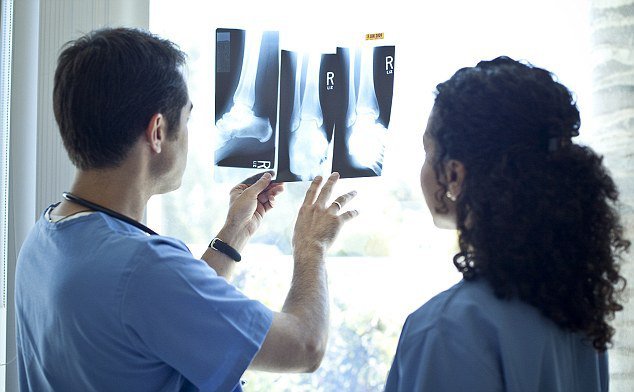Contents:
- Medical Video: Labor and Delivery | Childbirth | Nucleus Health
- Wine pregnancy is a tumor that develops in the uterus
- What are the symptoms if someone experiences wine pregnancy?
- The cause of pregnancy wine is an error in genetic material
Medical Video: Labor and Delivery | Childbirth | Nucleus Health
The happiness of the couple who crave the presence of the baby can disappear if the doctor diagnoses that the wife is actually experiencing pregnancy wine. What is wine pregnancy? Wine pregnancy is one of the problems of pregnancy whose signs are indeed almost similar to normal pregnancy. For more details, see this article.
Wine pregnancy is a tumor that develops in the uterus
Grape pregnancy or in medical terms called hydatidiform mole, is a condition in which a tumor develops in the uterus. Wine pregnancy is also known as molar pregnancy.
After the egg is fertilized, it should grow into a fetus. However, the eggs actually grow into abnormal cells that develop into white bubbles filled with fluid that resembles wine.
Although not a baby embryo, this abnormal cell growth will still trigger symptoms of a normal pregnancy, so many people think they are pregnant.
What are the symptoms if someone experiences wine pregnancy?
Signs of pregnancy wine are almost similar to the signs of pregnancy usually. That's why pregnancy wine is generally only detected after 10-14 weeks, usually during routine pregnancy checks.
The following signs or symptoms of wine pregnancy.
- Bleeding from the vagina that is dark brown to bright red in the first trimester.
- Severe nausea and vomiting.
- Pain or pain in the pelvis.
- The uterus is bigger than usual.
- Cysts in the vaginal canal that resemble wine.
- Abnormal discharge or discharge from your vagina.
- Symptoms of hyperthyroidism, such as feeling nervous or tired, a fast and irregular heartbeat, and excessive sweating.
The cause of pregnancy wine is an error in genetic material
The cause of grape pregnancy is thought to occur because of an error in the genetic material contained in sperm cells or egg cells before fertilization finally occurs. This causes two types of wine pregnancy to occur, namely complete wine pregnancy and partial wine pregnancy.
Wine pregnancy can be said to be complete if after fertilization, all the egg cells develop into abnormal cells where the placenta is formed but the fetus does not.
Whereas in partial wine pregnancy, the egg is fertilized by two sperm cells. Also after fertilization, the fetus is formed but the placenta does not provide nutrients as it should, but develops into abnormal cells.
Besides genetic problems, there are several other things that trigger the occurrence of wine pregnancy. For example, the age of women who are more than 35 years old or less than 20 years old when conception occurs, a history of wine pregnancy in a previous pregnancy, and a history of miscarriage.












